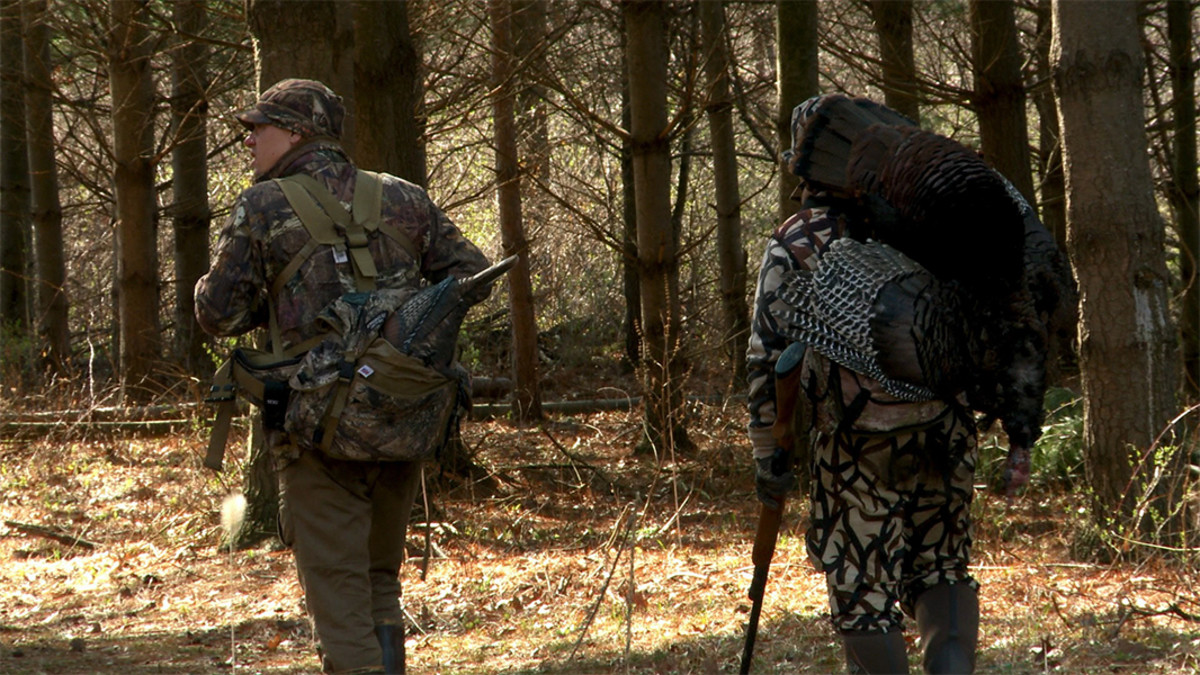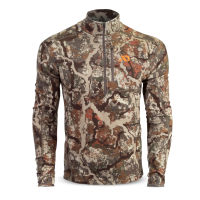
I once met a guy who bragged that he’s been hunting small game for 25 years without ever needing to wear backpack, as though being chronically ill-prepared was something to be proud of.
I like to carry with me everything that I need to stay comfortable in the woods for as long as possible – at least up to the point that the weight becomes too much of a hindrance. Depending on the scenario, that might include extra clothes, rainwear, water, food, and even a pair of chest waders if I’m hunting a location where I might indulge the whim to cross a river or enter a cattail marsh.
Here I’m using the term “backpack,” but it should be understood that a small game hunter’s backpack can easily be substituted by a game vest or a fanny pack.
Some guys loathe the term “fanny pack,” thinking it’s ephete and cutesy. Most of these fellas opt for the name “lumbar pack.” In my opinion, though, lumbar pack adds an unnecessary layer of confusion. It’s a fanny pack, and there’s nothing you can do about it.
Below are a few considerations, in the form of pros and cons, that I kick around when deciding how I’m going to carry around my gear on a small game hunt.
Backpacks
Pros
Due to their larger size, backpacks allow you the freedom of carrying more stuff. You can find ones in varying sizes and styles with adjustable shoulder and lumbar straps that easily accommodate different body shapes and provide back support. Most modern outdoor packs allow for easy storage and access of hydration systems, whether its a water bottle or hydration bladder. In addition, they offer other storage areas for smaller items. Overall, backpacks are extremely versatile.
Cons
Carrying a larger pack allows for over packing. Sometimes extra space is filled with excess equipment simply because its there. The larger size also reduces mobility in tight areas, and may make getting through thick brush or maneuvering in tight spaces difficult. They can also be heavy and may make a simple day hunt more difficult due to unnecessary weight.
Vests
Pros
Hunting vests provide space to store extra shells, radios, whistles, water, and harvested quarry all on your person. They have multiple pockets to organize small but vital pieces of gear. Due to the varying types, they can help keep you warm or cool, concealed or visible, all while providing an additional cushion for your shoulder while shooting. Vests provide adequate storage for most items you will need while in the field, with limited reductions to your mobility.
Cons
Overloaded vests can become cumbersome and make shooting awkward. They take some getting used to, especially when being used to store the majority of your day’s hunting gear. On the other side, they may not be able to carry all of what you need for your trip, and therefore may only be needed for specific hunts or limited uses while in the field. Due to the potentail limitations of space and their application, vests are less versatile than backpacks.
Fanny Packs
Pros
Fanny packs are small, light, and easy to carry. They allow increased mobility while providing storage for your essential hunting gear. They give you quick access to shells, hunting licences, keys, calls, or whatever you need to have on your person. They are great for low-intensity hunts and can be adjusted, opened, or removed with great ease. Modern fanny packs now range not only in size but in intended use, so you may find that this simple but effective storage unit is all you need. They also pair well with a backpack or vest for additional storage and access to high priority items.
Cons
Fanny packs far more limited than both backpacks and vests. Because they do not have as much space available, it puts pressure on the wearer to know what should go inside. There are fanny packs that allow for water bottle and other large item storage, but may become uncomfortable due to lack of support and additional weight around the lumbar. These are usually not primary pieces of equipment, so relying too heavily on the capabilities of a fanny pack may create some difficulties when deciding what gear goes with you and what stays behind.




